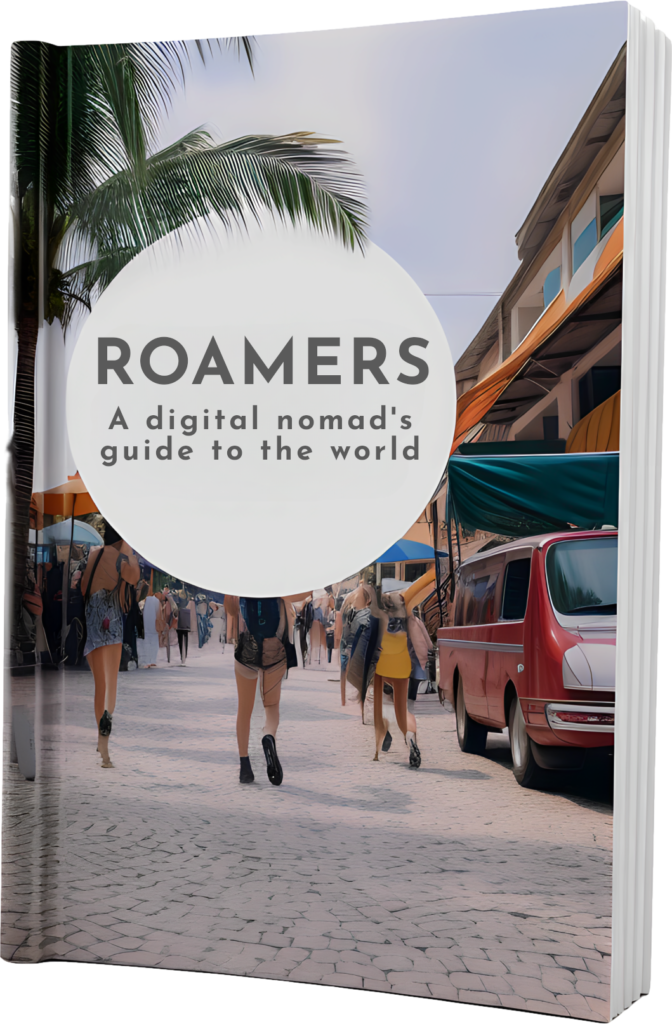Table of Contents
Picking a location
One of the main benefits of being a nomad is choosing the ideal climate all year round. I personally hate winter and cold temps, so I factor this in to my selection.
If you’re a remote worker, or run a business, you may have to work on fixed schedules to accommodate certain markets. For example, during my first years, I worked for a Canadian company and choosing South America had the benefit of aligning with my work hours pretty well.
This is another main reason to become a nomad. Being able to arbitrage your income by earning western wages but living in low-cost locations is huge and allows nomads to save and invest while still maintaining a good lifestyle and work-life balance.
Plenty of sites provide cost of living guides and tables for cities around the world, including our own right here!
Find out what the cost of apartments typically is, by browsing the AirBNB or Facebook Marketplace (or any local rental sites – ask in local social media groups what site they recommend – more on this later)
For the cost of food, sites like Numbeo provide good overviews – or you can simply look at online grocery shops for that country and convert the prices.
Not every country is as safe – from organized crime to political unrest, I recommend doing some research and consulting local resources (or articles on this site!) to find out which city, or areas within a city, are safe.
Language should be a factor to include in deciding on a location. Speaking the local language is a huge benefit. However, if you only speak English, fret not, choosing a major city will usually allow you to find English speakers easily. If you plan on spending lots of time in a single region, learning the language can also come in handy and help in making local friends and getting the best deals. This is one of the reasons I’m a big fan of latin America, as they all (besides Brazil) share the same language. Once you speak Spanish, over 20 countries are available to you!
Find out if your passport allows you visa-free entry, or if you need to apply for any sort of visa. Typically, a Google search will provide answers. For example, if I was headed to Thailand, I’d look up “Thailand entry requirements for Canadians” or something along those lines. Most governments have embassies which also have this information on hand.
Preparation
I don’t believe in people who swear by a single site (which usually just takes a markup on top of the actual ticket cost). Personally, I use Google Flights, and sometimes Skyscanner. Both those sites will show prices across multiple booking sites, and the carrier directly.
I would, however, recommend booking tickets around 7 to 10 weeks ahead of time for best prices.
If you’ve read my lodging guides on this site, you’ll know that I mostly use AirBNB. However, I do check the availability of AirBNBs, and if not many are available, I’ll usually ask other nomads or expats (this feeds into the next point) what the best site is to find lodging. Book your lodging at least a few weeks in advance. Typically, I recommend asking hosts or landlords for a speed test of their connection before paying or signing a lease if you work remotely.
Join local expat or digital nomad groups on social media. Typically I use Facebook for this but I’ve also used meetup.com and reddit.
They’re an immense value for nomads. Being able to lean into the knowledge of English-speaking expats or DNs already on location, is invaluable. From the best ways to exchange currency to scams to avoid, places to check out or avoid, good deals and more – those places are a gold mine of information.
Don’t be a pest though, use the search feature first and see if the question has already been answered before making a new post, it’s good etiquette!
That’s not to say to be shy though. Go ahead and introduce yourself, let people know when you’re coming, where you’re from. Ask if there’s anything you should know.
You might make some friends and people will volunteer information which you might not have known to look for! Additionally, people on these groups tend to look out for each other so it can be a bit of a social safety net when moving to a place you know no one in.
Make sure you have healthcare coverage in the country you’re headed in. You can do this as a single policy for a set amount of time, or an ongoing policy like I use with Safetywings. I pay about $45 a month for coverage worldwide (without USA). Other popular nomad insurance providers include Worldnomads and PassportCard.
Figure out what you’ll bring – you may need to buy some things so give yourself enough time to get those.
We have tons of gear reviews on this site to help you choose the best bags and gear for the nomad lifestyle.
Once you’ve got everything, make sure it all packs up (pre-pack once). You’ll basically be carrying your life on your back, or in a suitcase, for the next few months or year.
When it comes to it, as the years go by, I carry less and less stuff. I realized as time passed that many of the things I carried simply did not get enough use. I’ve shopped for smaller format items, from laptop to cameras, in order to optimize my packing.
We also have a fully dedicated Packing Guide which you may want to check out!
Find out what providers are available, what prepaid plans are offered, and find out what coverage is best (again, big fan of asking in expat/DN groups about this)
Find out if that provider has a store nearby your lodging or the airport. I personally recommend finding one close to an airport, so you can easily get a SIM Card as soon as possible and have data (so you can reach out to hosts/landlords and have access to Google Maps).
Find out which apps you’ll need. For example, you may use Uber in Peru, but you’ll use Cabify in Colombia, or Bolt in Paraguay.
Again, you can lean on the knowledge of nomad groups, or check out our must-have apps collection.
Look at the city on a map, figure out where the airport is in relation to your lodging. Download the maps for offline use (doable through Google Maps). You might be without data when you land, so having maps saved can help with getting around on arrival.
This includes visas or declarations that need to be made in order to enter the country.
Day Before
If you’re a minimalist, what you wear on your flight may be 10-20% of the clothes you travel with, so planning in consequence matters. If you’re expected to land in the rain, or the cold, or in sweltering heat, you’ll have to dress accordingly.
Once you know what you’ll wear, start packing the day before to avoid any final day stress.
Check your pack against the packing list you made to make sure you don’t forget anything.
If you need proof of onward travel to stay in a country, make sure to acquire it the day before your flight.
If you already have checked in, you might see which gate or terminal you’ll land at – otherwise, you can look up your flight number on a service like FlightAware or FlightRadar24. By looking at previous days data for your flight number, you should see which terminal it lands at. Learning how to get from that terminal to transport, or a cellphone shop to get a SIM Card can be really useful, especially if you don’t speak the local language at destination.
Most airports have maps online, or you can even use Google maps in some cases.
Travel/Arrival Day
This is a bit obvious, but don’t be that person. You might not need 3 hours to make it through, but don’t get there last minute without your check in done and 45 minutes to takeoff. I’m super experienced with airports and comfortable navigating them, but I still make sure to pass security 1 hour before takeoff time.
This is especially true if landing in central and South America, or in parts of Africa and Asia. People will come up and offer to drive you. While some of these people are indeed good workers looking to make a living, airport arrival areas are full of scammers looking to take advantage of gullible tourists. Use official taxi stalls or a reliable rideshare app.
Acquire a SIM Card if possible at the airport, sort out transport to your lodging, and inform your host or landlord, so they know when to expect you.
Take some time to take it in, new sights and sounds, language, architecture. The first few days in a country can really be special, so make sure to take it all in!


